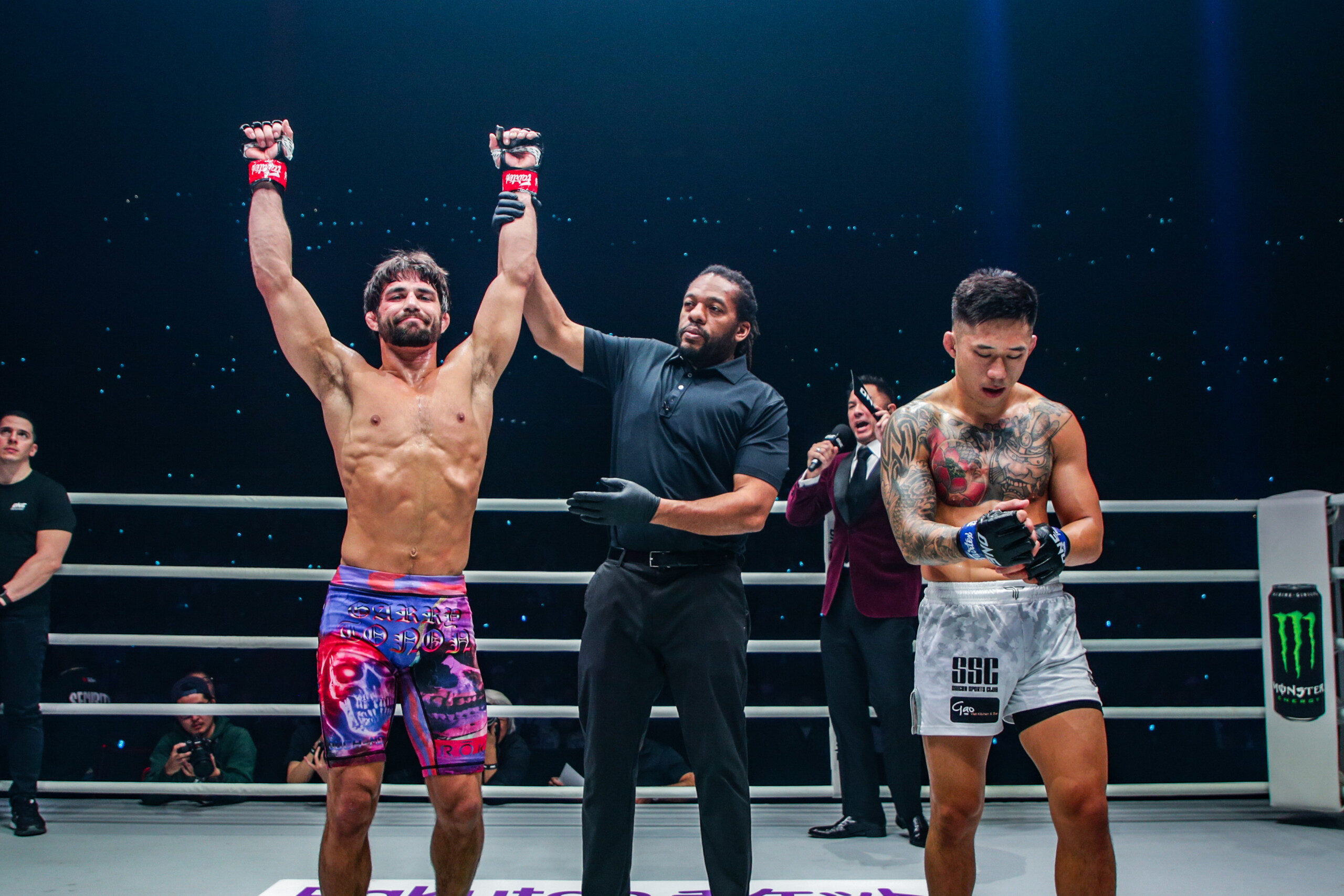Shinya Aoki’s ONE 101: The Key To A Long Mixed Martial Arts Career

I started judo when I was 10 years old, which means I have competed in martial arts for 27 years.
I then debuted in mixed martial arts in 2003, and I have competed in 53 bouts since then.
People consider me one of the veterans. And while there might be slight differences between abroad and in Japan, I cannot help but feel embarrassed when someone calls me a “legend.”
I am still an active athlete, and I am still learning more about mixed martial arts. I would like to continue that learning process, become more playful in bouts, and find more logical ways of competing.
Overall, I believe the length of a mixed martial artist’s career is relatively long.
The definition of “career length” is vague. It can include competing as an amateur and as a professional before retiring. Additionally, every athlete has their own standard for deciding when their time is done. Sometimes, other people may think they should retire, but the athlete still considers themself to be active.
Personally, I think there’s no definitive standard for when to retire. If an athlete continues training and has the intention to improve and compete, I consider them active.
Comparing Mixed Martial Arts To Other Sports
Mixed martial arts encompasses a very wide range of skills, such as striking, throwing, and joint locks. And among those skills, there are even more varieties.
I think it is almost impossible to reach perfection in all categories. Whether it’s boxing, wrestling, or judo, it is hard to imagine an athlete who reaches the top of the world in all sports. But perhaps one day, an athlete like that will be born.
Compared to judo, which I used to train in, mixed martial arts has more characteristics that require a long time to develop. I think that’s why the average age of the athletes in this sport is higher.
For example, on Japan’s current judo Olympic team, there are no athletes in his or her 30s. On the other hand, in mixed martial arts, there are some cases where young, talented athletes find it difficult to compete against older opponents with rich experience.
The wide variety of skills that are necessary to compete in mixed martial arts are a reason that career lengths can be longer.
Also, a mixed martial artist’s career path is different from competitors in other sports.
For many Japanese Olympic athletes, it is impossible for them to continue their careers if their contract with the companies who support them is terminated. In professional soccer and baseball, the athletes generally retire once their contract with their professional teams are done.
On the other hand, a mixed martial artist can decide to keep competing as long as they continue to receive bout offers, and even if their skills have begun to decay. It totally depends on the philosophy of that individual athlete – whether they retire at their peak or keep competing until they are satisfied.
‘The Most Important Thing Is Your Passion’
I am in the latter group. Once a mixed martial artist gains a proven track record, they essentially obtain a “passport” to continue their career for as long as they want. I think it is good for them to keep competing in martial arts until they feel like they have had enough.
It is also true that as athletes reach higher heights, their fall will be longer. However, if they accept this fact, they can continue.
Despite some ups and downs, I have been active in martial arts at the top level for a long time. That longevity is mainly because I haven’t gotten injuries.
It is difficult to avoid injuries in martial arts completely, especially as you age, but I have never required surgery or been forced to skip training because of one. I know that other top-level judo and mixed martial artists are surprised when I mention that.
So, how have I avoided injuries? I don’t do any extraordinary things, but I follow my daily training routine step by step and attentively. Additionally, I change the way I train depending on the situation, but I have also been lucky. Because of that, I am thankful for my parents.
I turned 37 years old this year, so I often feel the impairment in performance and recovery.
At the same time, it’s been many years since I’ve felt that the more I practice, the more I grow as a mixed martial artist. It’s not easy to keep improving, but I just love doing martial arts and believe I can take more steps forward.
The most important thing is your passion.
If you like and enjoy something, you can keep doing it forever. For me, staying active as a mixed martial artist is not anything special. I think it just means that I love the sport. It’s not just about accolades. As long as you have passion, it keeps you growing and going. I want everyone out there to value passion, too.
Like me, I think you can do as much as you want. I will do as I like, whenever I like, and quit as I like.
Mixed martial art is a diverse and generous sport, and that’s why I love it. I hope it stays that way forever.
The mixed martial arts superstar writes a monthly column titled “Shinya Aoki’s ONE 101,” where he breaks down the reasons why you must watch ONE Championship through the insightful perspective of an athlete. All opinions are his own.














